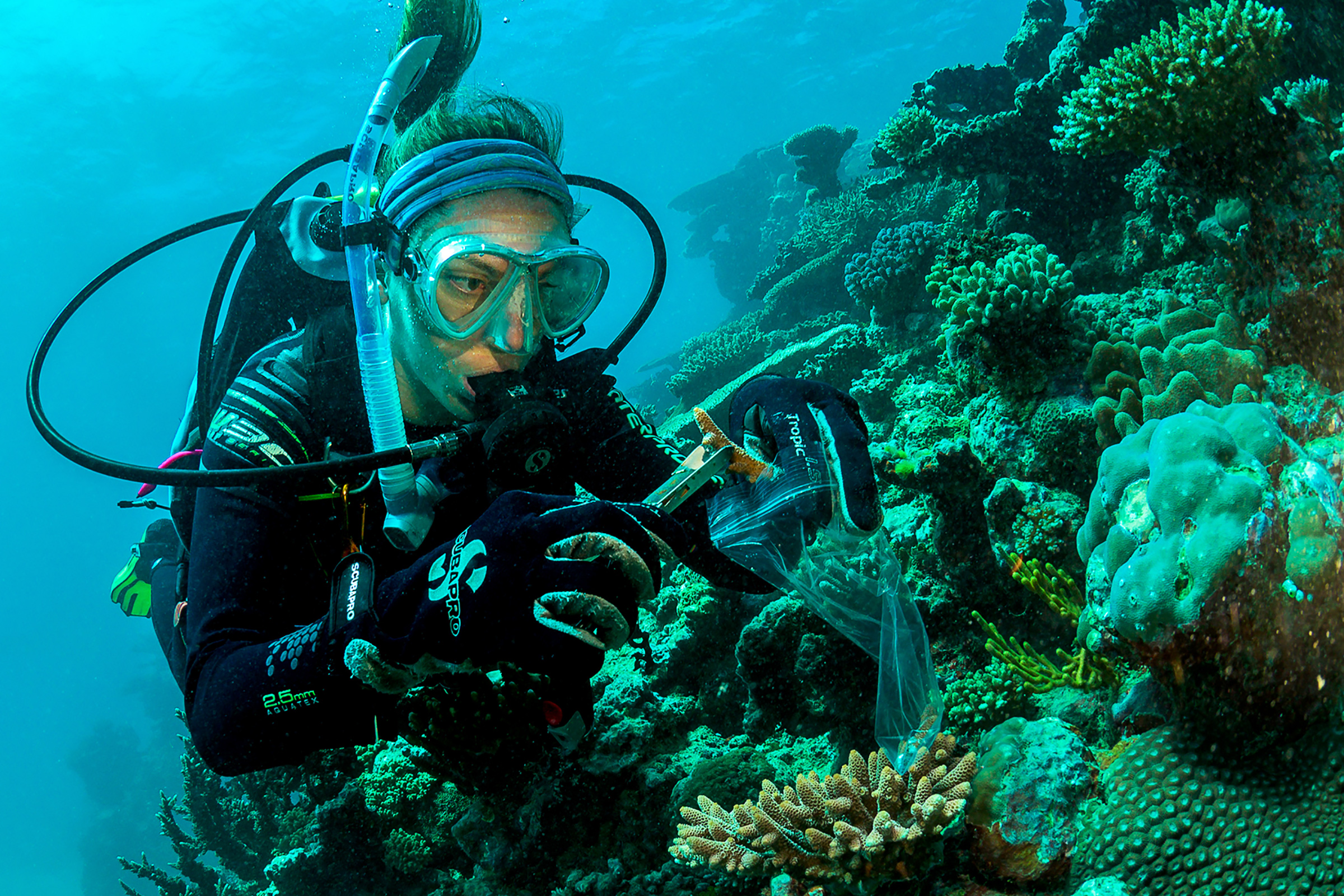Amid a global pandemic, another disaster was unfolding early this year beneath the ocean waters off the coast of Australia. Thanks to climate change, surface water temperatures across the Great Barrier Reef had hit record highs. The habitat had already suffered mass bleaching events caused by high water temperatures in 2017 and 2016, with the latter being the worst ever recorded, killing 22% of corals in the massive reef. By this April, the new damage was clear: the reef had endured the most widespread bleaching event ever recorded, as corals expelled the symbiotic algae that serve as their food source and give them their color.
With a quarter of all ocean fish depending on reefs during their life cycles, scientists say we urgently need to reduce greenhouse-gas emissions to preserve the essential habitats. “Unfortunately we aren’t acting quick enough on climate change, and that leaves a real problem for coral reefs,” says Emma Camp, 33, a marine biogeochemist at the University of Technology Sydney. She’s investigating special corals that survive in mangrove forest lagoons where water is warmer, more acidic and has lower oxygen levels compared with that surrounding most reefs, and which may be resistant to the conditions devastating the Great Barrier Reef.

Camp wants to learn if these creatures—named “supercorals” after she and a team discovered them during research for her Ph.D. in 2014—can be transplanted to other reefs to aid restoration. She’s also investigating the biochemical properties that allow certain corals to survive in extreme environments. And she’s part of a collaborative project between scientists and tour operators to grow corals in underwater nurseries and reintroduce them back into reefs. None of her efforts, she says, is a substitute for action to halt climate change. “My research is really about buying time.”
For Camp, it’s also essential to recruit a new generation of scientists to study the planet’s ecological systems. She talks about science with students around the world and speaks at local and international women-in-science events. “Climate and these other environmental issues are so huge,” Camp says. “If we lose 50% of the intellectual input or potential innovation because we’re filtering out women from that career path, we’re really going to struggle to solve those problems.”
- Donald Trump Is TIME's 2024 Person of the Year
- Why We Chose Trump as Person of the Year
- Is Intermittent Fasting Good or Bad for You?
- The 100 Must-Read Books of 2024
- The 20 Best Christmas TV Episodes
- Column: If Optimism Feels Ridiculous Now, Try Hope
- The Future of Climate Action Is Trade Policy
- Merle Bombardieri Is Helping People Make the Baby Decision